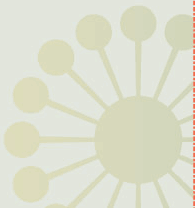LINCOLN AND THE PARANORMAL This year is the bicentennial of our sixteenth president’s birth. While Abraham Lincoln remains an enigma in many ways and his political and military decisions have been the subject of intensive scrutiny and controversy, it is his spiritual life that remains a mystery. Inasmuch as many Christian denominations would like to claim him as an adherent based upon his family’s religious proclivities or where he attended worship on occasion, and history’s iconographers point to his copious use of scriptural references, the fact remains that Lincoln was more spiritual than he was religious. He did not have a well-developed Christology and had an aversion to creedal religion and dogma, leaning more toward Unitarian beliefs. Nevertheless, Lincoln was possessed of great spiritual depth and had a fatalistic approach to life, trusting that God’s purpose would be accomplished. In the midst of the great tragedy of the Civil War, Lincoln had to deal with personal tragedy and his wife’s attempt to cope with it. His son, Willie and his brother-in-law, Alexander Todd, both died in 1862, the latter killed in action at Baton Rouge. Another son, Eddie, had died earlier. Mary Todd Lincoln sought consolation from mediums, notably a Mrs. Laurie in Georgetown, and some eight seances were held in the White House. Mary once said, “Willie lives. He comes to me every night and stands at the foot of the bed with the same sweet adorable smile he always has had. He does not always come alone. Little Eddie is sometimes with him, and twice he has come with our brother, Alex." Other mediums were also invited, and on at least two occasions the President sat in on these seances. Lincoln regarded them as an evening’s entertainment, and remarked that the “contradictory voices of the spirits” reminded him of his cabinet meetings. However, there were several claims that Lincoln was a “closet Spiritualist,” and consulted a teenage medium, Nettie Colburn, who persuaded him to emancipate the slaves. He also reportedly attended a seance at the home of Mrs. Laurie when her daughter, Mrs. Miller, levitated a piano. The president and three others sat on the grand piano and their collective weight was not able to prevent its rising. In spite of his metaphysical skepticism, his precognitive dream of his own death was extraordinary in its clarity and intent, so much so that he shared it with several persons. According to Ward Hill Lamon, Lincoln’s Chief of Protocol, who was present when the President related his dream to Mary, Mr. Lincoln said, "About ten days ago, I retired very late. I had been up waiting for important dispatches from the front. I could not have been long in bed when I fell into a slumber, for I was weary. I soon began to dream. There seemed to be a death-like stillness about me. Then I heard subdued sobs, as if a number of people were weeping. I thought I left my bed and wandered downstairs. There the silence was broken by the same pitiful sobbing, but the mourners were invisible. I went from room to room; no living person was in sight, but the same mournful sounds of distress met me as I passed along. I saw light in all the rooms; every object was familiar to me; but where were all the people who were grieving as if their hearts would break? I was puzzled and alarmed. What could be the meaning of all this? Determined to find the cause of a state of things so mysterious and so shocking, I kept on until I arrived at the East Room, which I entered. There I met with a sickening surprise. Before me was a catafalque, on which rested a corpse wrapped in funeral vestments. Around it were stationed soldiers who were acting as guards; and there was a throng of people, gazing mournfully upon the corpse, whose face was covered, others weeping pitifully. 'Who is dead in the White House?' I demanded of one of the soldiers, 'The President,' was his answer; 'he was killed by an assassin.' Then came a loud burst of grief from the crowd, which woke me from my dream. I slept no more that night; and although it was only a dream, I have been strangely annoyed by it ever since." Previously, in 1860, Lincoln saw a ghostly image of himself reflected in a mirror along with the actual image of himself. He understood this to mean that he would be re-elected president but not live to complete his term. In the century following his assassination the ghost of Abraham Lincoln was observed in the White House by such persons as Grace Coolidge and Queen Wilhelmina of the Netherlands, as well as other residents, visitors, and staffers. His presence was felt by many others What is even more peculiar is the extraordinary list of synchronistic and bizarre events associated with the assassination: the insanity of Mary Lincoln, Major Henry Rathbone (who was with Lincoln at Ford’s Theater), Boston Corbett (who killed John Wilkes Booth); Lincoln’s son, Robert, was also nearby at the assassinations of Presidents Garfield and McKinley; Edwin Booth saved Robert Lincoln’s life in 1863 in Jersey City, NJ; numerous accounts of clairvoyance preceding the events of Good Friday, 1865, the day Lincoln was shot; suicides and other mysterious deaths of persons somehow associated with the Lincoln tragedy. And of course there are the incredible coincidences relating to the assassination of John F. Kennedy. When placed in proper perspective, the death of Abraham Lincoln was a cosmic event that sent ripples through time and space unleashing an amazing array of paranormal and synchronistic activity that lends credence to the belief that all things are interrelated and affect one another.Dr. Harry L. Serio |
|
